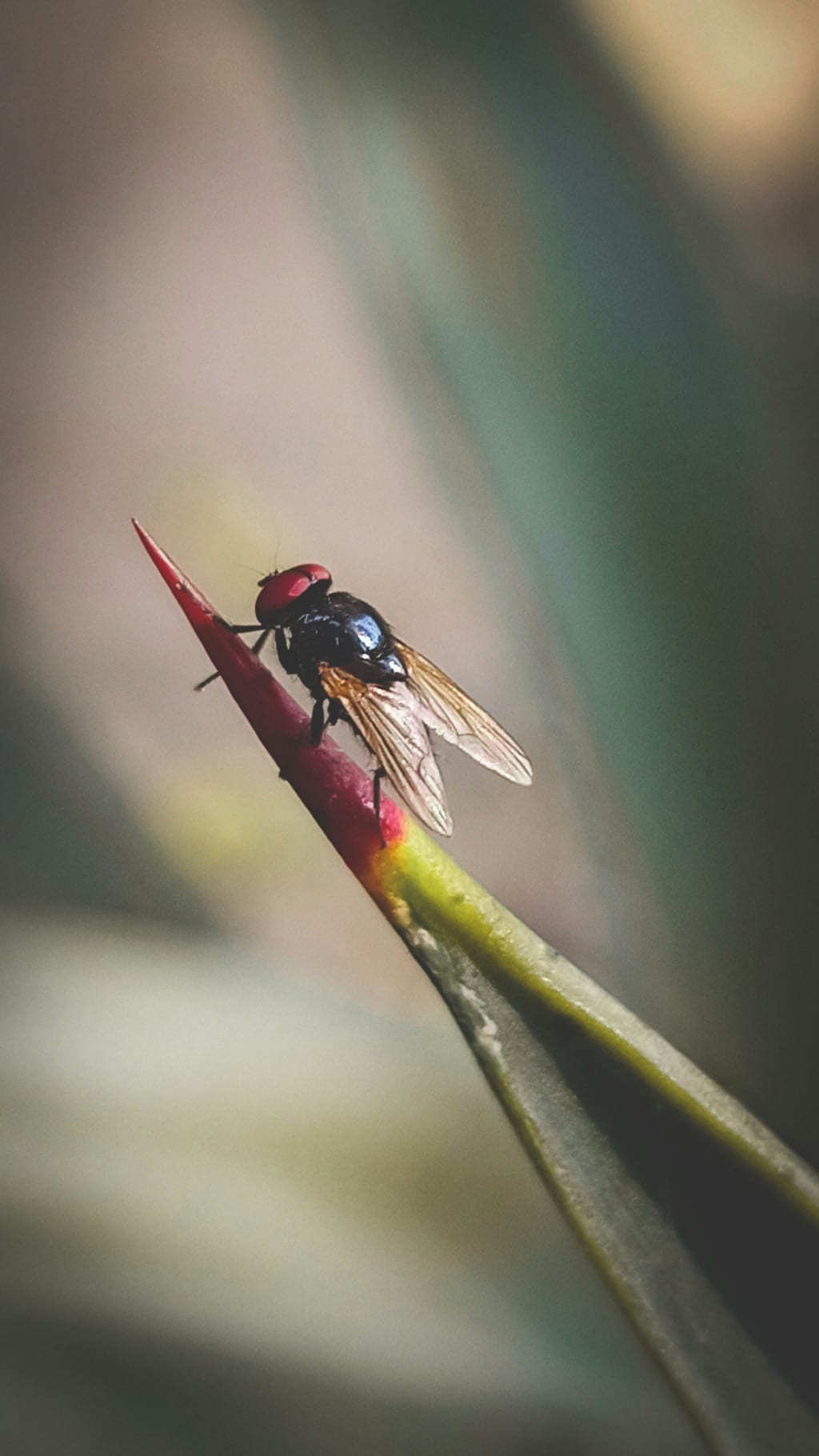What Flies Really Do When They Land on Food
Flies: An In-Depth Look at the Insects that Surround Us

Flies are one of the most common insects that we come across in our daily lives. They are found all over the world, except for Antarctica and a few islands. Flies have traveled across oceans and continents, following humans wherever they go. But have you ever wondered why flies are so common, or what purpose they serve?
Origins and Habits
Flies have been around for millions of years, originating in Asia. They are found in almost every environment where humans live, such as cities, suburbs, and rural areas. However, in the wilderness and deserts where humans are absent, flies are not so common.
Flies have hair all over their body, and they rub their limbs to clean them. The hairs on their limbs help them fly, find food, and do their work. They keep their limbs clean by rubbing them, which is important for their taste receptors. Flies have taste receptors on their feet, which allows them to taste their food before they consume it.
Flies drink their food because they can't chew, and they have a special way of making solid food edible. They regurgitate digestive juices on their food, which breaks it down into smaller pieces that they can drink. This also frees up space in their stomachs for new food.
Effects on Our Food
Flies may seem harmless, but they can be quite dangerous. They often land on our food, which can contaminate it with germs and microbes collected from the gross stuff they've landed on before, such as rotting foods, dumpsters, and other unpleasant things. Even worse, some of these microbes can cause diseases like cholera and typhoid.
To demonstrate how this works, an experiment was conducted with two bowls: one filled with red powder and the other with white rice. Flies were let in and migrated from the spice bowl to the rice bowl and back, covering the rice with red powder. If you imagine the spice as something gross and rice as your dinner, you'll see how easily your meal can get contaminated by a fly's germs.
To avoid this, always cover your food to prevent flies from landing on it, and if you're eating, make sure to shoo them away. But don't worry if a fly lands on your sandwich for a second before you can get rid of it. Just act fast and remove the fly, and your sandwich should be safe to eat.
Benefits to the Ecosystem
Apart from being gross and annoying, flies do serve some good. They're responsible for pollinating flowers. They collect nectar from them, which gets stuck to their hair on their bodies, and then they pollinate the next flower when landing on it. Also, if flies didn't exist, our planet would be even dirtier. Flies recycle some of the human waste. Flies are also an important part of the ecosystem since they are food for birds, spiders, lizards, frogs, and many more. Without flies, they'd all go extinct.
Interesting Facts
Flies are fascinating insects that can walk on horizontal, vertical, and even upside-down surfaces thanks to tiny hair on each of their feet that secretes a glue-like substance. Flies have unique eyes with thousands of simple eyes within each of the two compound eyes, allowing them to see almost 360 degrees without moving their eyes. In addition to the two compound eyes, flies have three simple eyes on their foreheads that help them navigate.
Flies have an incredible reaction time, which is why they are so difficult to catch. They see things in slow motion compared to humans, giving them plenty of time to escape. A fly's wings and halters help it take off quickly and balance in the air. If a fly loses one of its halters, it will fly in circles, and if it loses both, it can't fly at all.
Flies are fascinating creatures with unique abilities and characteristics that make them well-suited to their environments.
About the Creator
Abdul Hannan Saif
Blogger | Writer | Explorer | wish to inspire, inform and help others to see fascinating discoveries and live a fulfilled life!






Comments
There are no comments for this story
Be the first to respond and start the conversation.